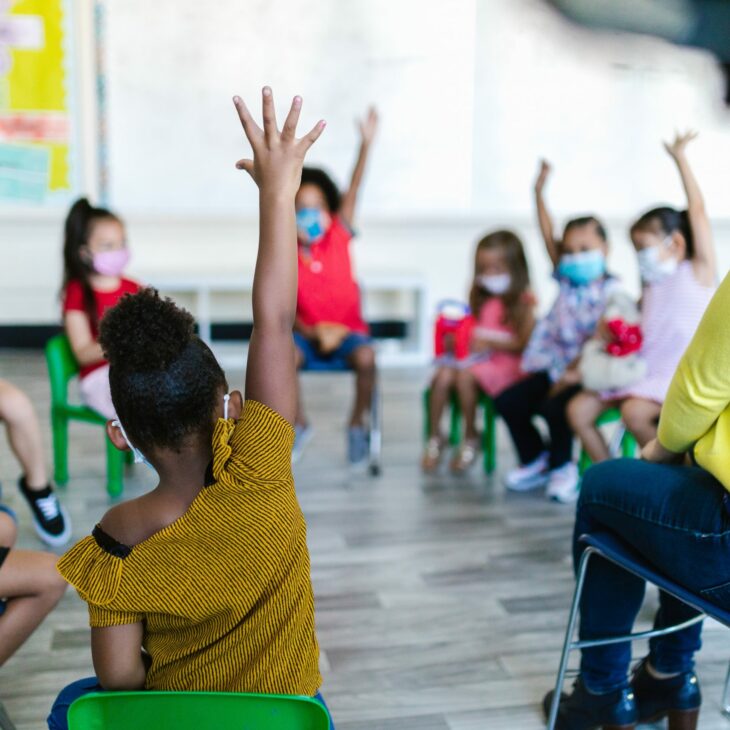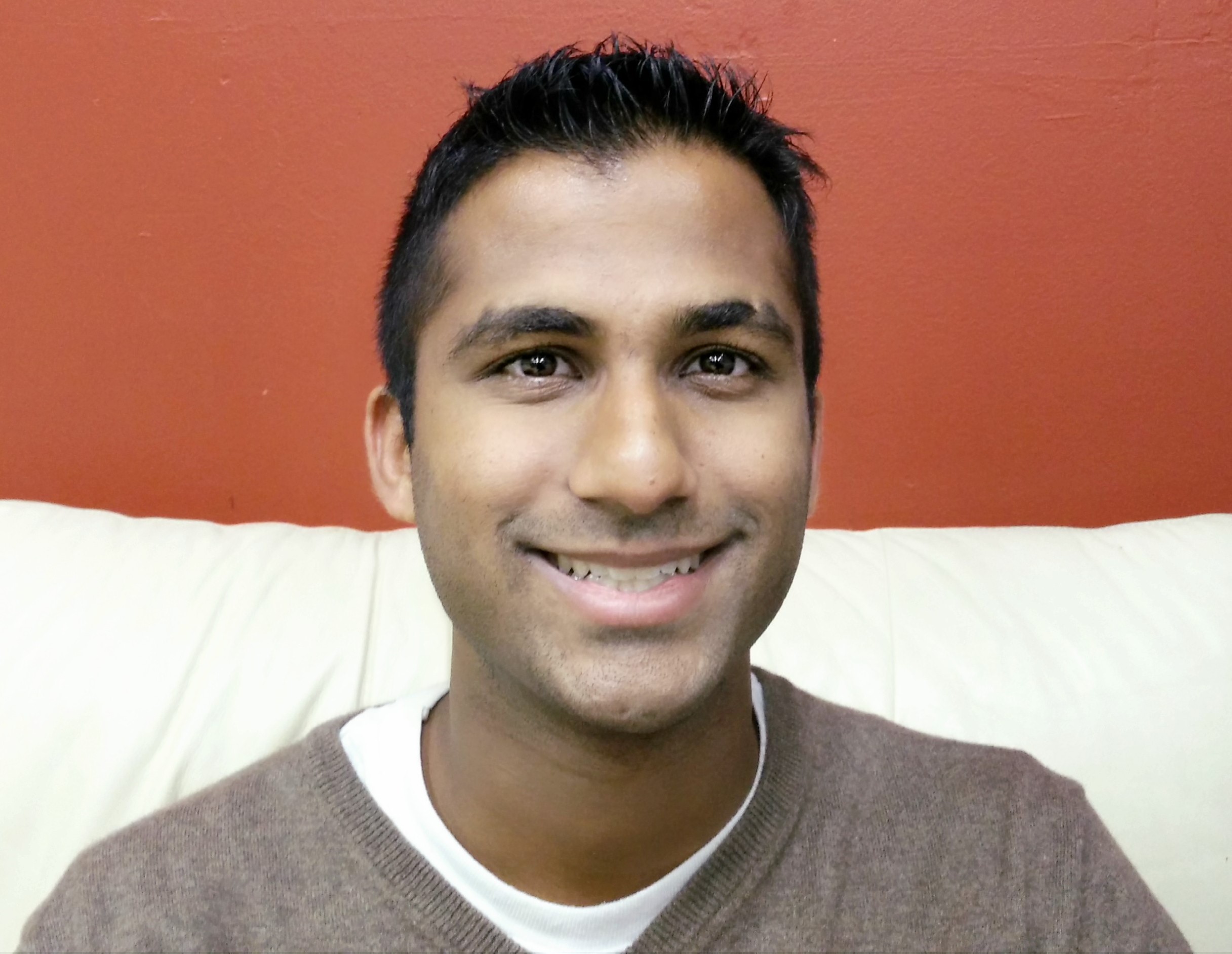Coaching for Equity: Lessons for Coaches, Teachers and Leaders
August 5, 2022

When it seems like everyone is shouting at each other, it’s easy to dismiss the power of conversation. Yet, bringing about change without conversation is often short-lived or superficial.
I have been fortunate to experience the transformative power of conversation.
In my childhood, I would tag along with my parents as they met people in our community simply to meet and become one with fellow human beings. Meeting others and building relationships for a purely selfless reason is rare when it seems like the only time people knock on your door is when they want you to vote for their candidate, buy their cable service, or sign their petition. My family has been inspired by Pandurang Shastri Athavale, founder of Swadhyay, who strived to bring to life the ancient yet timeless idea from the Bhagavad Gita: the divinity within you resides in the hearts of all of humanity. Therefore, my parents would regularly visit and converse with community members to cultivate a mindset of seeing divinity in others.
In high school, one of my teachers, Kermit Eby, inspired me to learn more about my faith and my peers’ by encouraging a friend and me to organize Religious Roundtables. During our discussions, Muslim, Christian, Jewish, Hindu, Jain, and other students discussed how challenging it was to fast or pray while navigating the social pressures every teenager in high school faces. These interfaith conversations demonstrated that religion isn’t a taboo topic. Instead, it’s possible to have authentic discussions which reveal how much we have in common without ignoring the real differences between our faiths.
In college, I co-taught a course at the University of Illinois Urbana-Champaign on creating inclusive communities for students of all races, ethnicities, sexual orientations, and social classes. The class primarily used a dialogue approach where each student’s life experience created the narrative we discussed in class. For example, students who were the first in their families to attend college would share the challenges they faced in their first year on campus. Their peers, many of whom would become resident advisors, developed greater empathy for students with vastly different experiences than their own.
As a high school social studies teacher and instructional coach, I find myself drawing on those same skills. I seek to create a classroom that compels students to examine their beliefs, develop the intellectual humility necessary to be changed by their peers, and ultimately take action. A global pandemic and the murders of George Floyd, Ahmed Arbury, Breanna Taylor, and countless others in the summer of 2020 made me question whether conversation can help create genuinely equitable opportunities for all people in every aspect of society.
While searching for answers, I came across the work of Elena Aguilar, an instructional coach and former teacher who artfully weaves insights from education and the social sciences to teach people how to coach leaders who, in turn, help create more equitable communities. Elena’s instructional coaching model is unique because she explicitly creates opportunities for clients to explore and express emotions. Emphasizing emotions is critical because leaders often seek to change behaviors without addressing underlying beliefs and feelings.
When we leave emotions such as fear and guilt unexplored, they become impediments to change — especially when faced with inevitable resistance. For example, while many educators were moved to organize book studies and attend workshops following the 2020 summer of racial reckoning — guilt, fear, and powerlessness often meant only a few of the well-intentioned ideas made their way into practice. Emotions can be roadblocks, but they can also inspire and sustain us if we’re coached on how to explore and embrace our feelings while pushing for change. Leaving underlying emotions and beliefs unexplored is one common cause for inaction, but often even when educators are motivated to enact change, knowledge or skill gaps hold them back.
Coaching leaders — whether they work in schools, non-profits, hospitals, universities, or other settings — is critical because it helps close the gap between where they are and where they want to be. For example, in schools, coaching can help teachers create learning experiences that affirm diverse students’ experiences, challenge students to see the world from different vantage points and ensure that academic opportunities are not predicated on race or socioeconomic status.
I received a grant from Interfaith America in 2021, allowing me to take a masterclass on Coaching for Equity organized by Elena Aguilar. During each session, Elena modeled transformational coaching moves. Then we had time to practice them in different scenarios. Watching an expert, practicing through role-play, and feedback helped us develop concrete skills that have changed my coaching conversations.
The skills I learned from the Coaching for Equity masterclass allowed me to coach other educators more effectively. For instance, a colleague I coached could more clearly articulate her equity goals as a teacher and leader in the district after our coaching sessions helped her identify her core values and reflect on why she became an educator. Also, after examining the strengths and opportunities in her existing curriculum, she could craft lessons that encouraged students to explore how their racial identities shape their worldviews. Finally, through role-playing through various common classroom scenarios, she developed vital skills for facilitating conversations many teachers often shy away from — the role of race and privilege in our everyday lives.
Below are a few conversation models that can be especially helpful for creating more equitable communities. Following a short description of each model, there are suggestions to help you shift your conversations along with resources for further study.
Identity
Coaching conversations focused on identity address head-on what we generally avoid: how our race, gender, religion, ethnicity, etc., shape how we see the world and the challenges at hand. These conversations are critical for examining underlying forces at play in a constructive manner. Asking the people you’re coaching to explore their social identities’ role in their personal and professional lives raises self-awareness and creates opportunities for connection with the communities they work in. Exploring our identities also highlights the limitations and blind spots in our lived experience, which can be addressed with continued learning and partnership with the communities we serve.
- “Along with hearing your experiences as a … it’s very helpful for me to understand how you think about your identity. I’m curious how you identify in terms of race, class, gender, etc.”
- “Which one feels most important to you? What role do these identity markets play in your daily experiences?”
- Resource: Exploring Identity Markers
Mental Models
Helping clients examine the mental models which inform our beliefs and behaviors can help break out of ruts in our way of thinking and chart more equitable paths forward. Reflecting on our underlying beliefs also helps create the will to persist when faced with inevitable resistance. Often, we don’t recognize how our beliefs are shaped and how they determine the actions we choose to take. Unpacking these mental models can help leaders examine the beliefs that could hold them back from leaning into changes that currently aren’t the norm will lead to genuinely equitable communities.
- “I’m wondering if we might be able to explore some of the beliefs you’re holding.”
- “I’m curious to understand how you think about …”
- Resource: Ladder of Inference
Emotions
Finally, creating space to explore emotions allows us to identify barriers to change, create a deeper groundswell for action, and resilience when faced with roadblocks. The coach seeks to recognize emotions in the client and then normalize the client’s feelings by communicating acceptance.
- I’m noticing you’re experiencing some strong emotions. Can we explore those for a few minutes?”
- “What’s coming up for you?”
- Resources: Core emotions and Nonviolent Communication strategies
While our ultimate aim is to see divinity in all beings, having regular, intentional conversations can help us see our shared humanity and create more equitable communities.
Share
Related Articles

Arpan Chokshi
Arpan Chokshi is a National Board Certified Teacher, instructional coach, and teacher mentor. He provides professional development on equity, educational technology, and student-centered pedagogy. He received a 2020-21 Racial Equity and Interfaith Alumni Award from Interfaith America, which he used to advance racial equity work at Hinsdale Central High School through book studies, workshops, and sponsoring professional development for allies. Chokshi’s workshops taught participants to center racial equity conversations on lived experiences and equip them to have discussions about other topics too often ignored in schools: religious bigotry, homophobia, gender bias, and more. Website: teachereflections.com and Twitter: @mrchokshi



